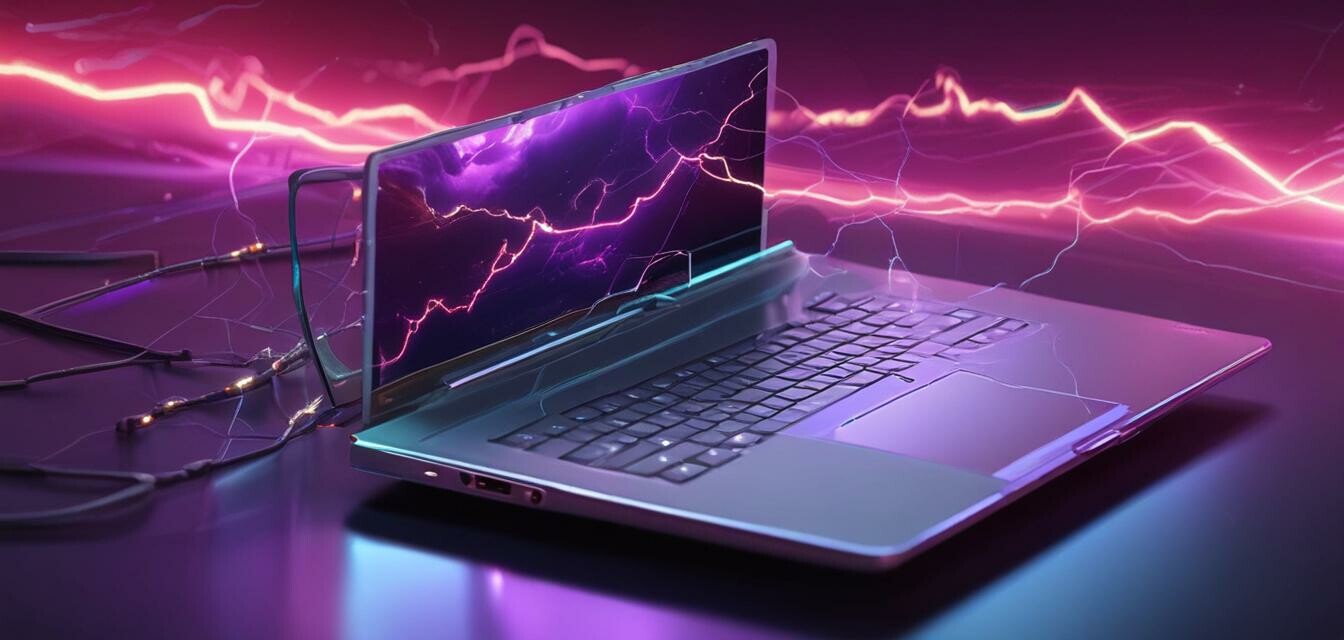
Future trends in laptop battery technology
Key Takeaways
- Emerging technologies aim to significantly enhance laptop battery longevity and charging speeds.
- Solid-state batteries are expected to replace traditional lithium-ion batteries.
- Wireless charging technology is becoming more prevalent in the laptop market.
- Improved energy density could lead to lighter and thinner laptop designs.
- The integration of AI for battery management systems will optimize performance and lifespan.
The landscape of laptop battery technology is continuously evolving, driven by the need for longer-lasting and faster-charging batteries. As we look ahead to 2025, several innovations are on the horizon that promise to revolutionize the way we use our laptops. This article will explore the emerging trends in laptop battery technology, highlighting key advancements that will enhance user experience.
Current State of Laptop Batteries
Today's laptops primarily rely on lithium-ion battery technology. While these batteries have brought forth significant advancements in terms of energy efficiency and weight reduction, they still face some limitations. The typical lifespan of a lithium-ion battery often results in reduced performance and range over time, leading consumers to seek better options.
Challenges with Existing Technologies
- Degradation over time reduces capacity.
- Long charging times can hinder productivity.
- Weight and bulkiness can affect laptop portability.
- Safety concerns around overheating and battery failure.
Emerging Technologies in Laptop Batteries
Several emerging technologies are set to improve laptop battery performance dramatically. Below are some of the notable advancements:
1. Solid-State Batteries
Solid-state batteries are touted as a game-changing technology that will replace lithium-ion batteries. This new battery type utilizes a solid electrolyte, which offers several advantages:
| Feature | Solid-State Batteries | Lithium-Ion Batteries |
|---|---|---|
| Longevity | Longer lifespan with less degradation | Limited lifespan, decreases over time |
| Charging Speed | Faster charging times | Slower charging, typically takes hours |
| Weight | Lighter weight options available | Heavier, bulkier designs |
| Safety | Lower risk of overheating | Higher risk of thermal runaway |
2. Wireless Charging Technology
Wireless charging technology is becoming increasingly popular in the world of laptops. This trend allows users to charge their devices without the hassle of cables, enhancing convenience. Key benefits include:
- Seamless charging experiences in public spaces.
- Reduction of wear and tear on charging ports.
- Elimination of cable clutter in workspaces.
3. Enhanced Energy Density
Improving energy density allows batteries to store more power in a smaller size. This advancement will lead to:
- Thinner and lighter laptop designs.
- Extended usage times without carrying a charger.
- Improved overall user experience.
Impact of AI on Battery Management Systems
The integration of Artificial Intelligence (AI) into laptop battery management systems is emerging as a trend to optimize performance. AI can help predict usage patterns, improving efficiency and shelf life:
- Adaptive power management based on user habits.
- Real-time monitoring of battery health and performance.
- Automated adjustments for optimal charging cycles.
Conclusion
As we look forward to 2025, the future of laptop battery technology appears bright. With advancements like solid-state batteries, wireless charging, enhanced energy density, and the incorporation of AI in battery management systems, users can expect better performance, longer usage times, and enhanced overall satisfaction. Staying updated with these innovations will help consumers make informed choices about their next laptop purchase.
Pros
- Longer battery life with solid-state technology.
- Faster charging speeds.
- Enhanced safety features and lower risk of battery failure.
- Greater convenience with wireless charging.
Cons
- Higher initial costs for advanced batteries.
- The transition period for entire industry adoption.
- Potential compatibility issues with older devices.
For more insights into laptop innovations, check out our latest news and trends and explore our budget laptop selection for more affordable options. With technology changing rapidly, it's important to stay informed about the best choices for your needs!